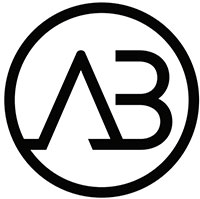In the Becoming Coachable miniseries we explore the power of Flourishing, a leadership style in which the leader is invested in the success of their organization, stakeholders, and themselves, while appreciating and channeling the impact they can have on the world.
Along with my coauthors Scott Osman and Jacquelyn Lane, I am privileged to work alongside and learn from a community of Flourishing leaders.
Our friend, former CEO of Best Buy, and 100 Coaches member Hubert Joly is a shining example of what it means to live a Flourishing life. At each turn, Hubert consistently elevates and inspires others to be the best they can be—not solely for themselves but for those around them and the organizations they serve.
Hubert doesn’t prioritize inanimate goals. Instead, he prioritizes the people who help us get there. What follows is an excerpt from our new book, Becoming Coachable, in which Hubert graciously illuminates the power of feedback during the coaching process, as well as the necessity of leading with a human-centered approach.
We’re grateful to Hubert for lending his perspective and experience to Becoming Coachable, and even more appreciative of his contribution to the world. If you feel called, please tag a coach or leader for whom you are grateful for in the comments and tell us why. After all, relationship-driven, Flourishing leaders make the world a better place. We can’t wait to hear who has moved you.

Hubert Joly is a classic example of a leader who experienced very positive change and ended up being a great role model for Flourishing. A graduate of HEC Paris and Sciences Po, two of the most renowned business schools in the world, Hubert began his career at a leading global management consulting firm, rising quickly through the ranks to become partner. He then held a series of leadership roles demonstrating his ability to outperform and lead companies to success, delighting investors. Hubert says that his experience at these prestigious institutions led him to believe that it was important to be the smartest person in the room. He thought the value he brought to the table was coming up with the right answer to the problem at hand. And that worked for him until he met his next challenge.
When he was the CEO of the Carlson Companies, Hubert decided to work with Marshall. He was very open to learning and saw this as a potential way to move from becoming effective to becoming even better.
After leaving Carlson, Hubert accepted the challenge of leading Best Buy as CEO. When he took over as CEO, there was not a single analyst that recommended the company’s stocks as a “buy,” which was a very bad sign. All advice was to reduce headcount; fire employees to reduce costs.
When he received coaching at Carlson, Hubert liked all the positive feedback he received from his stakeholders in his 360. He was very smart and dedicated, exhibited the highest levels of integrity, and had a great knowledge of the business. But he initially struggled with the negative feedback. As his coach, Marshall helped him process the negative feedback and guided him to embrace asking for help. Hubert embraced this process. Eventually one of his favorite phrases became, “My name is Hubert, and I need help.”

He recognized that setting the goalpost of being the smartest leader is overrated, and that creating the right environment for others to thrive is the key to successful leadership. Hubert recounts the story:
To support that effort, Hubert spent time working in a Best Buy store in St. Cloud, Minnesota. He asked the front-liners: “What’s working? What’s not working? What do you need?” His job was as simple as posing the question and taking notes. And eventually, Hubert did as he was told…by the employees. The people on the front lines had all the answers; all he had to do was listen. It was also about reshaping the team at the top. As it relates to turning the ship around, headcount reduction was the last resort. Oh, and he learned a new word: heartcounts. To Hubert, heartcount reduction was even more of a last resort.
In Hubert’s own words: “Leadership starts with figuring out who you are and who you want to be as a leader. At the end of the day, a business is a human organization, made up of individuals working together in pursuit of a goal. And that’s what matters, as does the idea of thinking about the company as a purposeful human endeavor of innovation. It’s the idea of pursuing that noble purpose, putting people at the center, embracing all stakeholders, and treating profit as an outcome. The idea of the leader as the superhero who knows everything and tells other people what to do—not so effective. Being clear about your purpose, your principles, and being driven by words that we never used to use in business, such as authenticity, humility, empathy, and humanity. These are very important words.”
WSJ Bestseller Becoming Coachable
